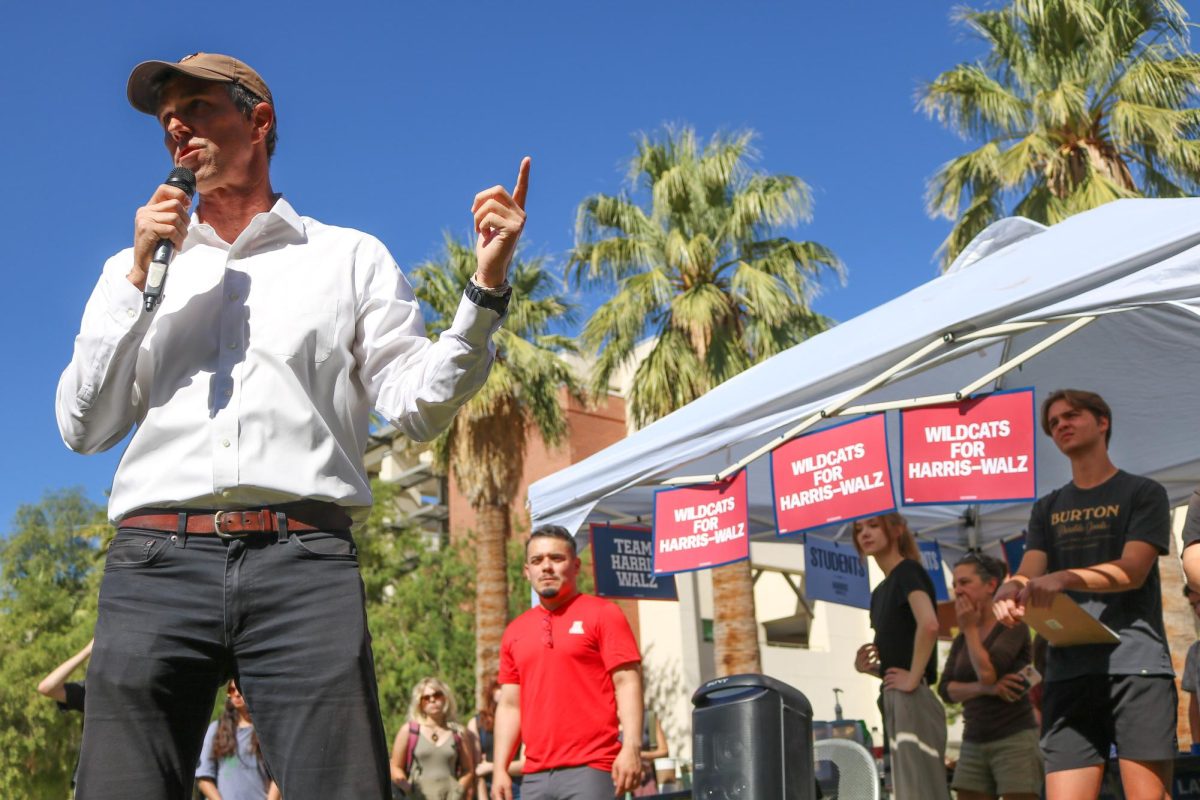At the ASUA meeting on Wednesday afternoon, Cody Ortmann, a UA alumnus, brought his concerns about UA student groups being affiliated with the Faith Christian Church in light of recent allegations being raised against the church.
Ortmann, a former Associated Students of the University of Arizona senator himself, said he had his own personal encounters and experiences with FCC when he was a student.
Wildcats for Christ, Native Nations in Christ and the Providence Club are the three UA student groups that are affiliated with the church, and under the FCC’s umbrella, according to Ortmann.
Ortmann claimed that the FCC has been using these student clubs to gain access to campus by renting rooms and even holding barbecues on campus.
ASUA Sen. Michael Finnegan asked Ortmann what he was proposing and what he wanted the senate to do in regards to the issue.
Ortmann responded that he would like to have them send out a resolution telling the Dean of Students Office that they not only agree with the University Religious Council’s decision but also recommend they follow suit in no longer formally recognizing the three clubs, at least until the dean of students’ investigation into the matter is complete.
Although there was no comment from the senate on whether they will send a resolution, senators continued to ask more questions about the incidents and allegations brought against the FCC and the student clubs associated with them.
ASUA Sens. Elena Gold and Joey Steigerwald asked Executive Vice President Jordan Allison to provide points of information to clarify what benefits arise from recognizing these student clubs and if it were even possible to suspend their recognition, how would it disadvantage the club.
The benefits afforded are the opportunities to rent rooms on campus, receive ASUA funding, access to ASUA marketing and tools such as a mailbox and website.
The reason a club would not be able to apply for recognition would be that its constitution does not meet the requirements for the university, according to Allison.
In response, Ortmann cited specific examples from the ASUA club and its organization handbook and the Student Code of Conduct about hazing. He read examples that stated students should not engage in any act of hazing that will cause harm, personal degradation or disgrace which results in physical or mental damage to anyone attending this institution.
He pointed out multiple lines in detail that illustrated it need not be the FCC itself for the decision to be considered, but that a club associated with the FCC is a sufficient and key determining factor in making this decision.
_______________
Follow Chastity Laskey on Twitter.








